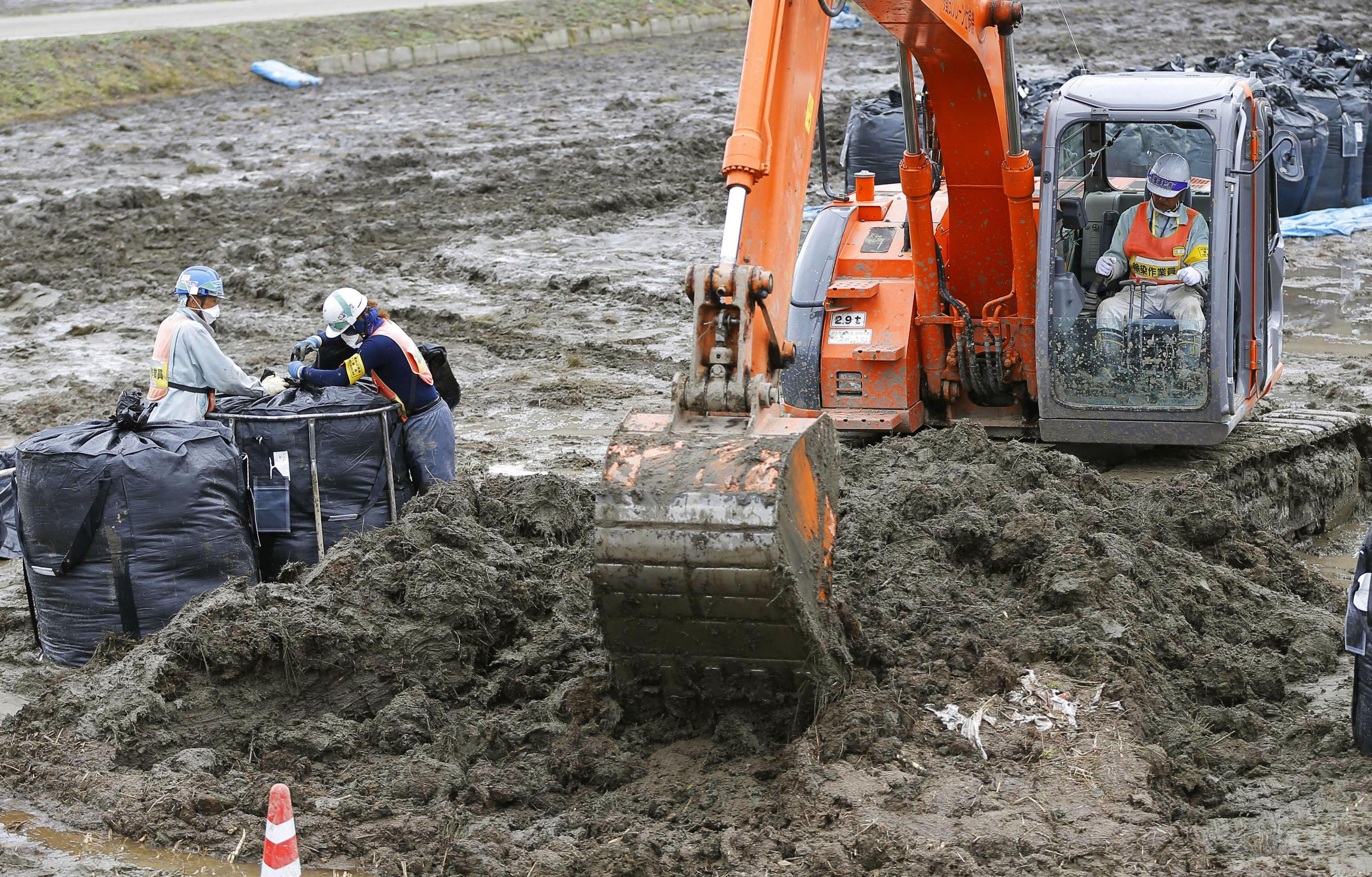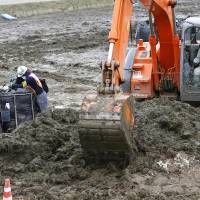In a major policy shift, the government will use more than ¥1 trillion in public funds to clean up contaminated areas around the Fukushima No. 1 plant, according to sources.
The plan revealed Friday to alleviate the financial burden Tokyo Electric Power Co. was supposed to shoulder is in line with a ruling Liberal Democratic Party proposal compiled Thursday on ways to accelerate the sluggish recovery from one of the world's worst nuclear crises.
Tepco is still expected to stump up to some ¥3 trillion because the government has no intention of exempting it from decontamination payments that have already been planned by the state and local governments.
The central government, for its part, plans to use taxpayers' money to respond to additional decontamination needs for infrastructure restoration, such as cleaning schools, parks and other public facilities that have been left to go to seed after residents fled from their homes. It will also use public funds to build interim storage facilities to keep radioactive soil and other waste from the cleanup efforts.
The Environment Ministry has earmarked a total of ¥1.5 trillion for radioactive decontamination through fiscal 2013, ending next March, and has asked Tepco to pay back ¥40 billion of the funds it has so far used. But the utility has only returned ¥6.7 billion, citing delays in clerical work and tough business conditions.
Tepco is struggling amid soaring costs for fuel imports to boost thermal power generation to cover the loss of all its nuclear plants. It also needs funds to compensate people and companies affected by the nuclear crisis and to decommission the crippled reactors of the Fukushima No. 1 plant.




